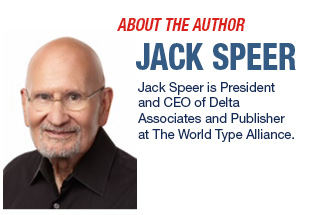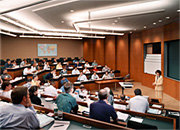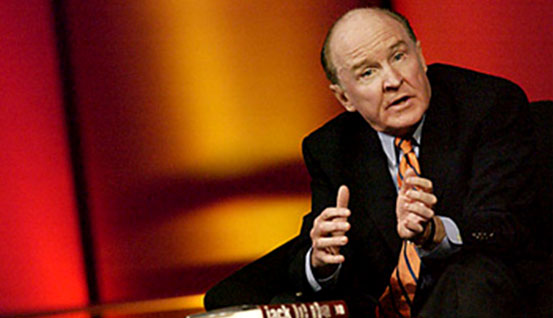Popular, Brutal, Controversial, and Successful–Leadership Guru Jack Welch Made GE Number One Through Training
Is Leadership Training Important to Your Team? Or Is It Just An Expensive Distraction?
 Jack Welch is probably the CEO with the most powerful impact of any during 20th Century. He took over GE in 1981 during a sluggish economy and quadrupled its profit. He insisted that all GE companies be 1st or 2nd in their industry. He fired the bottom ten percent of GE leadership every year. He was called “Neutron Jack,” because he obliterated people who didn’t drive profit. The three legs of his leadership stool were accounting, publicity, and training. What are yours?
Jack Welch is probably the CEO with the most powerful impact of any during 20th Century. He took over GE in 1981 during a sluggish economy and quadrupled its profit. He insisted that all GE companies be 1st or 2nd in their industry. He fired the bottom ten percent of GE leadership every year. He was called “Neutron Jack,” because he obliterated people who didn’t drive profit. The three legs of his leadership stool were accounting, publicity, and training. What are yours?
If your top executives don’t train, look for problems as you scale your business. Your executives have to grow and develop on their trip to the top. The skills and approaches your team is using successfully today can kill your business tomorrow.
Jack Welch, hard bitten and refusing to waste time, energy, and resources on what didn’t make a business number one or two in its industry, believed that training is key.
Jack Welch stated that “an organization’s ability to learn, and translate that learning into action rapidly, is the ultimate competitive advantage.”

Many CEOs view training as a wasteful use of time. Most often it is because senior managers have never experienced effective training. You have to experience effective training, and so much of training isn’t.
Yet today GE’s 190 senior managers still train one year out of 15 years of their employment at GE, and GE spends a billion dollars each year on it.
Untrained leaders who have floated up through the ranks cause some of the greatest disasters in organizations today. They kill companies and the careers of the people who work for them. It’s axiomatic that people don’t quit jobs, they quit the people who were their managers—managers that disarmed them, disabled them, discouraged them, and often disgusted them.
Here are the principles of training that attracts winners:
 Training that generates the fuel that propels your company to its goals. Go with training that gives people the power to resolve the issues of the day and to pull their people with them. Who moved your cheese and “beginning with the ending in mind” are all important subsets of the powerful central question: “What are the drivers of why your people do what they do and how can you line up who they are as people with what you want them to accomplish?” Just don’t lose focus on that central question.
Training that generates the fuel that propels your company to its goals. Go with training that gives people the power to resolve the issues of the day and to pull their people with them. Who moved your cheese and “beginning with the ending in mind” are all important subsets of the powerful central question: “What are the drivers of why your people do what they do and how can you line up who they are as people with what you want them to accomplish?” Just don’t lose focus on that central question.
- The Value of the Training Must be Evident to Those who Attend and Rivet Their Attention. In the Dilbert comics, where Dilbert and his fellow team members live, the most ignorant, useless, expendable and unqualified are condemned to go to training. Unless you can show in the first day of training that it is a tool that your participants can immediately use, training is wasted time.
- Training is a two-way street. Training that moves your organization forward and builds your leadership bench has built into it high expectations of those who are participating. There’s no room for passive attendance. Training should incorporate hard, real world work that leaders are expected to accomplish before the next session.
- Training Must be a Dead-Accurate Photograph of My Life as a Manager. Training that speaks to some generic team somewhere in the world won’t capture my attention. To be perfectly honest, if the training is useful to me it has to be about the most important person in the world—you got it, that’s me! That’s why we use assessments such as 360-degree feedback, the MBTI®, the FIRO-B, and the CPI 260 that give me a complete photo shoot of who I am as a leader.
- Training Isn’t a Once-in-Time Event—It’s a Company Tool. Our ideas about the purpose of training are most often wrong. Companies pull in training programs to take care of performance problems. Once the training is completed, they check the problem again to see if it’s cured. Training, like golf, is a very complicated skill. It is never learned. That’s why pros have coaches for life. Your best swing deteriorates and finally doesn’t work. You’re always reinventing your game. Lack of leadership skill—like the absence of any skill—isn’t a pathology. Training should never be designed to “fix” anyone. “Fixing people” doesn’t work. Training them in essential skills does work, as well as retraining to refine skills and prepare them for the next level and the next level after that.
Lack of executive training is ludicrous. It would be like fielding 30 pro players on a football team and not teaching them to run plays. Untrained executives will never make it to the Super Bowl.






